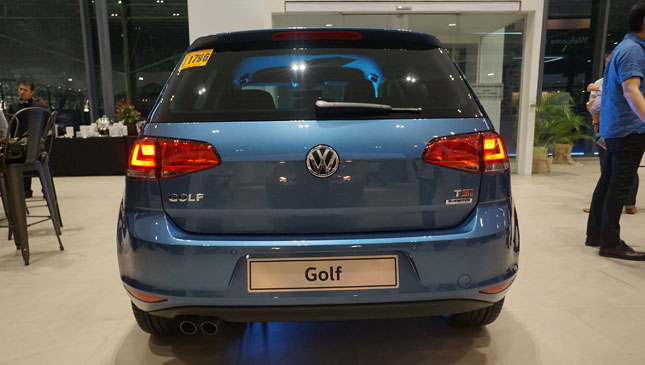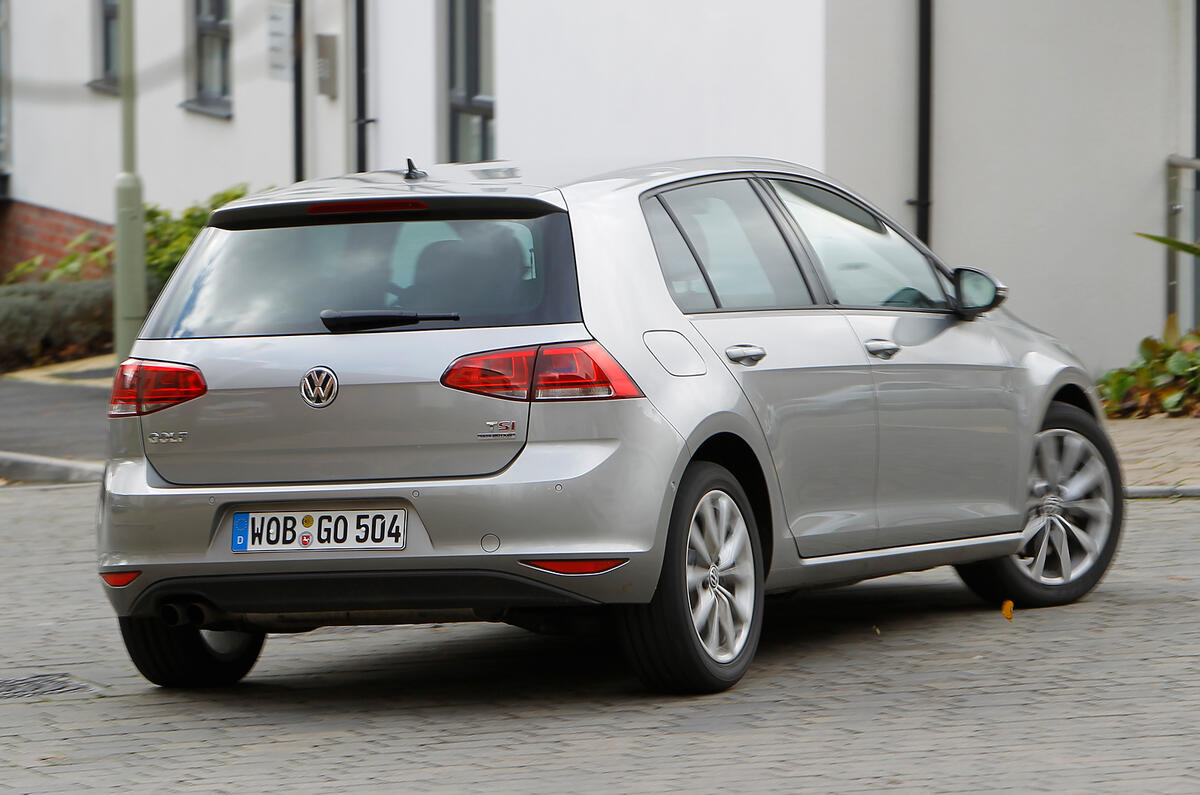
Full Answer
How many miles will a 2001 golf run?
For instance, a 2001 Golf with a mileage of 80,000 miles can still run after adding 50,000 miles on its distance. However, when you are reaching up to 1.5 million miles, the engine is approaching its limits.
How long do Volkswagen Golfs last?
In terms of years, Volkswagen Golfs can run for an average of 5 years without problems and can still work further after changing the timing belt and if you maintain the engine regularly. How Long Dies Volkswagen POLO Last? Volkswagen Polo has a line of comfortable hatchbacks and has a history of being reliable.
What are the specs of a 2006 Volkswagen GTI?
Key Specs. of the 2006 Volkswagen GTI. Base trim shown. Body Type: Hatchback See similar vehicles. Combined MPG: 27 Combined MPG. Engine: 180-hp, 1.8-liter I-4 (premium) Drivetrain: Front-wheel Drive. Transmission: 5-speed manual w/OD.
What is the mileage of Volkswagen Polo on average?
Volkswagen Polo has a line of comfortable hatchbacks and has a history of being reliable. The average mileage of Volkswagen Polo, 1.2-liter petrol, is 16.47kmpl. Despite the estimated mileage, the mileage in real-time can be affected by some factors like the driver, condition of the road, and tire pressure.
See more

How many miles will a Golf engine do?
How Many Miles Does Vw Golf Last? The start is here!! A Volkswagen car typically lasts 100,000 to 150,000 miles on average and even more if it's well maintained and serviced.
How many kilometers can a Volkswagen Golf last?
vw ENGINES can easily do 300 ooo kilometers before needing any major work.
What is a 2006 VW Golf worth?
2006 Volkswagen Golf Value - $423-$5,315 | Edmunds.
Is Golf 6 a reliable car?
The Volkswagen Golf Mk6 is a high-quality, refined and efficient family hatchback with solid residual values. This means it'll cost a bit more to buy used than rivals, but you'll also get more of your money back at the other end – not to mention that desirable VW badge.
How long do VW engines last?
Most Volkswagen engines on today's roads are designed to last as far as over 100 000 miles. This explains why mileage is used as the main factor when it comes to evaluating the duration of an engine.
How many miles is too much for a Volkswagen?
As long as a car is more than 10 years old, 100,000 miles is a reasonable number, but more on that later. 100,000 miles should be treated as high mileage. If you own a high mileage car, make sure to change the oil with high mileage formula oil, and change it as recommended by the oil manufacturer.
What is a Mk5 Golf?
The Volkswagen Golf Mk5 (codenamed Typ 1K) is a compact car/small family car manufactured and marketed by Volkswagen, as the fifth generation of the Golf in three- or five-door hatchback (August 2003–2008) and a five-door station wagon (2007–2009) configurations, as well as the successor to the Golf Mk4.
Are old VW Golf reliable?
The Volkswagen Golf Reliability Rating is 4.0 out of 5.0, which ranks it 25th out of 36 for compact cars. The average annual repair cost is $630 which means it has average ownership costs. Repairs are less severe than average, and the frequency of these issues is average, so major repairs are not common for the Golf.
Which year VW Golf is best?
Model years 2013 and 2014 proved to be a bit more reliable, yet there were still numerous reports of 2014 VW GTI reliability problems. In fact, the GTI has had 3 generations, generation 6 (2009-2014) being the least reliable. The stories of VW Golf GTI Mk6 problems were widespread.
Is a VW Golf expensive to maintain?
The majority of models in the range are more expensive to maintain than competitor vehicles, although it's great that the German company offers a five-year capped-price plan, which is longer than a few of its biggest competitors....Volkswagen Service PlanGolf3 years$366.66$1,100.005 years$380.00$1,900.0017 more columns
How many miles can you drive on a Volkswagen Jetta?
However, it is not the same when using the Volkswagen Jetta vehicle. You still get to enjoy using your Volkswagen Jetta vehicle even when it is beyond the 100,000-mile mark. Additionally, some models have been said to surpass the 200,000-mile mark with little issues.
How long does a VW last?
Volkswagen cars typically last around 100,000 miles as long as it is serviced and taken good care of. VW cars you buy today usually last longer than VWs that are just 10 years old. However, like most vehicles, you can only achieve this mile mark if you continuously take the car for regular maintenance. So, in essence, your car will last as long as ...
How much mileage does a Passat have?
Generally, the average mileage of Volkswagen Passat is 17.42 KMPL. The Passat Highline Automatic also has about 14 KMPL and can go even further if you maintain the engine better. Over the years, the lifetime of Volkswagen cars has gradually increased.
What is warranty on Volkswagen?
When you buy a new Volkswagen car from an authorized dealer, you will be given a comprehensive warranty package. This covers any repair or defect during the first three years.
How does bad oil affect a Volkswagen engine?
Bad oil will affect how smooth your Volkswagen engine works. Schedule car maintenance routine and stay true to it. This will ensure that your vehicle lasts longer and exceeds the 100,000-mile mark. Also, Volkswagen car engines are made with parts that are made to last throughout the lifespan of the vehicle.
How long is the Volkswagen warranty?
Volkswagen gives a minimum of twelve months warranty when you buy used cars. This is part of the Das WeltAuto warranty package to ensure that you get the best despite your budget.
Do VW cars last?
Yes, Volkswagen cars last as long as other car brands. It’s German quality and you can expect them to last many years when you take good care of them. Whether you are using a VW Passat or a VW Jetta, the lifespan of your vehicle is highly dependent on how you handle the engine.
How many 2006 GTI models are there?
Editor’s note: There are two 2006 GTI models. One is the fourth-generation 2006 GTI, and the other is a completely redesigned fifth-generation 2006 New GTI, or GTI MkV, which this review covers.
How much does a GTI weigh?
The new GTI, at a curb weight of 3,308 pounds (manual), is 374 pounds heavier. It feels weightier than some competitors, but the increased engine output and revised independent suspension improve matters. The main change is in body roll.
What is the 1.8 liter engine?
A turbocharged 1.8-liter four-cylinder used broadly across the Audi and VW lines for years was an excellent engine. However, it had some of the pitfalls of small turbocharged engines — namely, turbo lag and a high-rpm torque peak. New to the fifth-generation GTI is VW’s 2.0-liter FSI four-cylinder.
Why does the FSI have a four cylinder butt?
The main reason that the new, smaller four-cylinder kicks the six-cylinder’s butt is direct injection. Rather than drawing a fuel-air mixture into the combustion chambers, the FSI engine’s turbo forces air alone into the cylinders, and the fuel is sprayed directly into each cylinder.
Does the GTI have a touch screen?
Overall, the German brands’ GPS -based navigation systems are less useful than others, with more cumbersome controls and typically less street labeling on the maps. The GTI’s shows some progress, but it still uses keys alongside the display rather than a touch-screen.
How many miles should a VW Jetta timing belt be?
Please Note: When originally released, the recommended timing belt interval for ALH TDI VW Jetta Golf Beetle was 40,000 miles for automatic transmissions and 60,000 miles for manual transmissions. However, in 2003 VAG raised the timing belt interval to 100,000 miles. This was done because of improvements made to the timing belt idler bearing ...
Why does my VW timing belt last so long?
The following are some reasons why you see the difference in how long a VW timing belt and related components last: (1) un-logged engine idle times and sitting in traffic; (2) warm-up time in cold weather; (3) environmental climate factors; (4) related engine maintenance that may have been overlooked.
